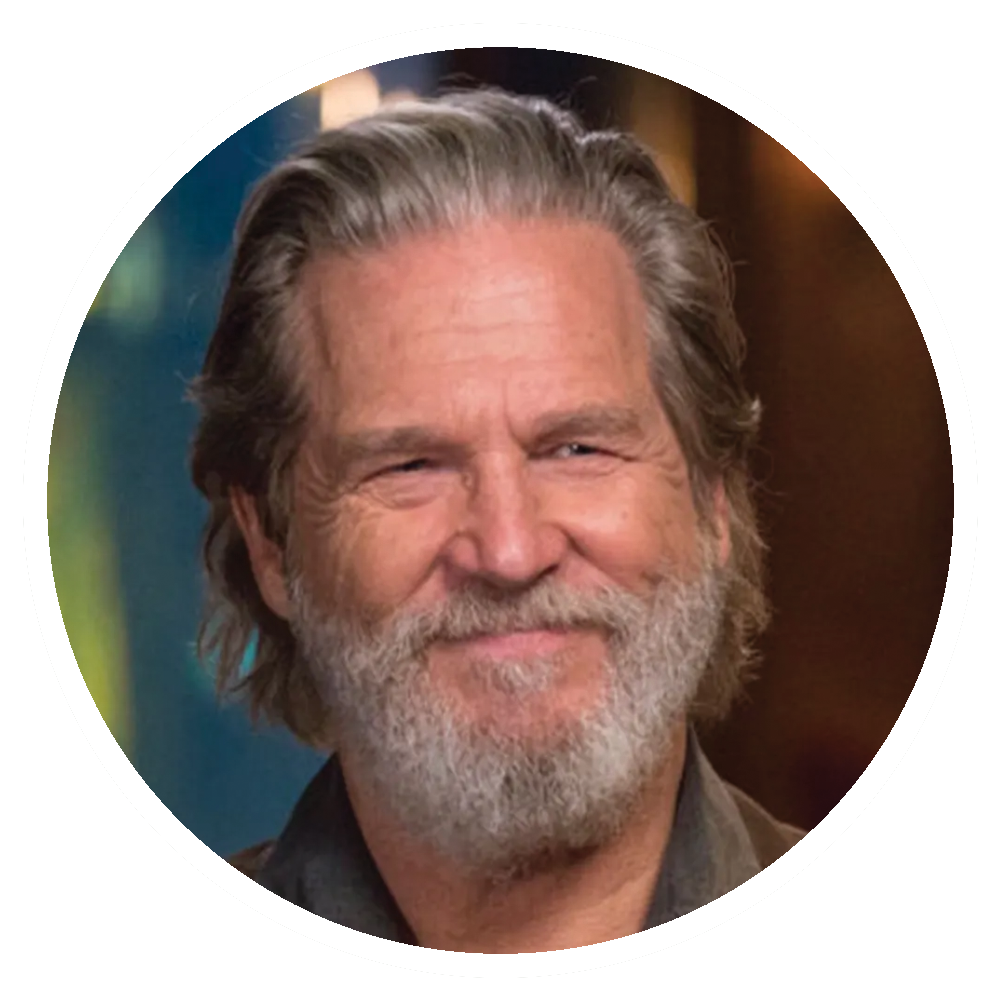An Idea Whose Time Has Come
The End of US Hunger by 2030
by Jeff Bridges
|
Jeff Bridges is an Academy Award®-winning actor, a musician, a photographer, and a philanthropist. For more than 40 years, he has been a leading anti-hunger activist and advocate for children. In 1983, Jeff founded the End Hunger Network, a non-profit organization dedicated to creating public awareness and action to end hunger. Jeff participated in the 1985 Live Aid Concert and received the Presidential End Hunger Award in 1988.
In 2010, Jeff became the national spokesperson for the No Kid Hungry campaign to end childhood hunger in America and has been working tirelessly to increase national awareness on this often-hidden issue. He is on the Advisory Group for the EndHungerUSA2020 campaign. |
I know that everyone reading this is saddened by the fact that, in the richest nation on Earth, people suffer from hunger. But, contrary to common belief, the tragedy of hunger is not limited to a few Americans who live on the fringes of society. Can there be an American Dream when nearly 1 in 5 American children go to bed hungry?
For four decades, ending hunger has been a personal commitment. Either because of the injustice it symbolizes or because of the emotions that it triggers in me, I have always felt the need to take action. I have three children of my own, and when I imagine the pain that parents must feel who are unable to feed their children, I am brought to tears. During the 1980s, world hunger was my focus, and together with some friends from the entertainment community, we founded the End Hunger Network. The End Hunger Network was part of the team that produced the Live Aid Concert broadcast to more that 1 billion people in support of bringing relief to the victims of a famine in Africa, and creating an awareness of the plight of the poorest of the poor in the world’s least developed countries. Fortunately, the world has made great progress in reducing hunger in Asia, Africa and South America. Unfortunately, since that same period, hunger in the United States has reappeared. As a result of national priorities and programs undertaken during the era of Kennedy, Johnson and Nixon, hunger in the United States was basically ended. Perhaps some of you can recall the national outrage that was sparked by the revelations of the severe poverty in Appalachia, the inner cities and amongst the elderly that led to the creation of national initiatives such as School Lunches and Breakfasts; Women, Infants and Children (the WIC program which provides food and medical attention for pregnant women and newborns); and Food Stamps (now SNAP). These initiatives did their job and continue to play key roles in insuring the nutritional well-being of America’s poor. So, what happened? There’s no denying that the reduction of government funding for these programs has contributed greatly to the hunger crisis. Ending hunger has not been a priority for politicians, but I do believe that it is a priority for the American public. Answering the End Hunger Question and joining the emerging EndHungerUSA2030 popular movement can help us bring national attention to this issue and cause positive change. As a people we value family, education and success. Hunger is an enemy to all three. Scientific studies have demonstrated that even brief periods of hunger can permanently inhibit a child’s mental, physical and emotional development. Hungry kids can’t learn in school and are less likely to grow into productive adults. For families, the experience of hunger means living in a world of shame and isolation. Our society is only as healthy as our most vulnerable citizens. And the bottom line is that when so many of our children and brothers and sisters are suffering from hunger, we are all at risk. No other western industrialized country has widespread hunger within its borders. We really must end hunger in America if we are to sustain our prosperity and protect the future we want for our children and our children’s children. Food banks and emergency food programs provide important charitable support for food-insecure families, but they will not end hunger in the U.S. We need to reach beyond charity to educate and empower Americans throughout our country and society. Our goal is to be a catalyst for change. Americans want their country to be free from hunger, but they don’t know how their involvement can make a difference. The truth is that there are many ways — and joining the EndHungerUSA2030 movement and sharing it with others is an important way to start the conversations that will turn the tide. Ending hunger is not a partisan issue, it is an American issue. In his 1969 message to Congress, President Nixon said, “That hunger and malnutrition should persist in a land such as ours is embarrassing and intolerable.... More is at stake here than the health and wellbeing of 16 million American citizens.... Something very like the honor of American democracy is at issue.” I believe it will take all of us — citizens, students, businesses, politicians, celebrities, the media, even the White House — to make ending hunger a national priority. If we can make it important enough, we can change it. I invite you to join us in ending hunger by 2030. |

